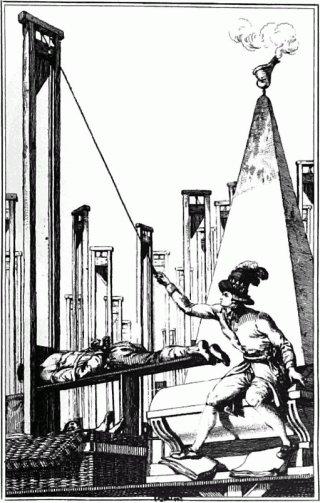Well, 214 years ago today, the Bastille, the symbol of French Aristocratic Tryanny, was stormed and taken by the poplace.
Liberte, Egalite, Fraternite.
It's a good time to think about the fact that it seemed so black and white back then. And, it seemed so black and white in our struggle against fascism in the 1930's and 1940's.
But there were arguments then, as there are arguments now. Black and white is what you make of it in hind sight.
Or foresight.
We are, today, embroiled in an existential fight against tyranny and totalitarianism, every bit as threatening as the Ancient Regimes of 18th Century Europe, or the fascists of 20th century Europe.
We have seen Ireland and Greece become occupied territories of International Banksterism. We have seen the compliance of governments, from our own, to our neighbour to the south, to the U.K. to this new system that puts financial sector totalitariancrats above the law. No banker, no matter the crime, goes to jail. They face no consequence. They are above the law.
They are tyrants.
It is that black and white. And our fight is as existential today as those who have sacrificed-- and won-- before us.
Freedom, Equality, Sister and Brotherhood to you all.




